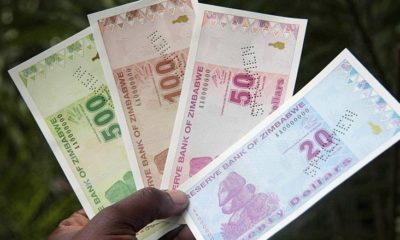African Development Bank officials and representatives of the Zimbabwe government met on Wednesday to discuss the nation’s arrears clearance and ongoing partnership between the southern African nation and the development institution. They noted progress in Zimbabwe’s reform agenda.
African Development Bank Group Vice President Yacine Fal and a delegation on a tour of two southern African countries, held talks with finance minister Mthuli Ncube at the ministry offices in Harare. Ncube outlined the ongoing reforms in the wake of global headwinds such as drought, cyclones, the Covid-19 pandemic and more recently, fuel and fertilizer price hikes.
The Zimbabwe government has lowered taxes on fuel, made changes to its land policy and is implementing a range of social protection measures while tackling the Covid-19 pandemic, Ncube said. Two projects in particular are going well. The first, is an agriculture-based programme which has given relief to two million households and the second is a cash transfer programme, targeting children from poor families. Other measures included subsidized medical care for elderly people and other vulnerable population groups, and a grain distribution programme for populations in drought-hit areas.
Ncube said the government was discussing a new International Monetary Fund Staff Monitored Programme or SMP for Zimbabwe. SMPs are informal agreements between country national authorities and International Monetary Fund (IMF) staff to monitor the authorities’ economic program.
Ncube said the government had made significant efforts ahead of embarking on a new programme, including reducing inflation. He asked the African Development Bank to increase its private sector window with more capital and long-term funding and said the country would need additional bridge finance to hold interest rates steady.
Commending the achievements of Zimbabwe’s reform efforts achieved in a short period, Fal said continued coordination efforts for the reforms and dialogue with partners were crucial.
“You have a very ambitious reform programme and the challenges are many,” Fal said.
In remarks during the session, African Development Bank chief economist Kevin Urama said Zimbabwe’s reforms to its state-owned enterprises were a demonstration of its willingness to advance. The African Development Bank’s Africa Natural Resources Centre could provide additional support and technical assistance in land policy. Its public finance management academy, which provides a framework for supporting regional member countries in their public financial and debt management efforts, specifically on training, technical assistance and policy dialogue, is another important tool which the Bank has on hand to assist, Urama said.
Director General for the Bank’s Southern Africa regional development and business delivery office Leila Mokaddem said the Bank and other development partners would discuss financial support for an SMP, which in the case of the African Development Bank, could potentially be sourced from its transitional support facility. “Without financial support an SMP cannot work,” Mokaddem said, adding that including the private sector and giving them incentives would be critical.
Following the finance ministry, the delegation continued to a meeting with Dr. M.J.M. Sibanda, Chief Secretary to the Zimbabwe president’s Cabinet. Sibanda, who chairs a tripartite committee of government, treasury and public services said despite the many challenges, the committee’s immediate priorities in the past months had been to push through reforms in governance and contracts.
He thanked the Bank for its corporate governance and procurement reform programme to Zimbabwe through capacity building, monitoring and evaluation, the health sector and $4.1 million in institutional support the African Development Bank has given for the nation’s state enterprises.
“We succeeded because of the support from the African Development Bank,” Sibanda said.
The Zimfund has been an important source of budget support for Zimbabwe in infrastructure and agriculture. African Development Bank Zimbabwe Country Manager Moono Mupotola said a 10-year programme ending in June 2022 would be replaced with a new fund, expanding to ICT and digital programmes and continued technical support.
“We would like to bring in the private sector, drawing on institutional investors in Zimbabwe such as pension funds,” Mupotola said.
Fal said a breakfast meeting organized earlier on Wednesday by the African Development Bank with ambassadors from the G7, European Union and other development partners, had been very encouraging
“We welcome this dialogue. These are baby steps, but we are getting there,” Fal said.










 Forex3 weeks ago
Forex3 weeks ago




 Naira2 weeks ago
Naira2 weeks ago
 Billionaire Watch2 weeks ago
Billionaire Watch2 weeks ago




 Naira2 weeks ago
Naira2 weeks ago




 Naira2 weeks ago
Naira2 weeks ago




 Naira1 week ago
Naira1 week ago




 Naira3 weeks ago
Naira3 weeks ago




 Naira4 weeks ago
Naira4 weeks ago













